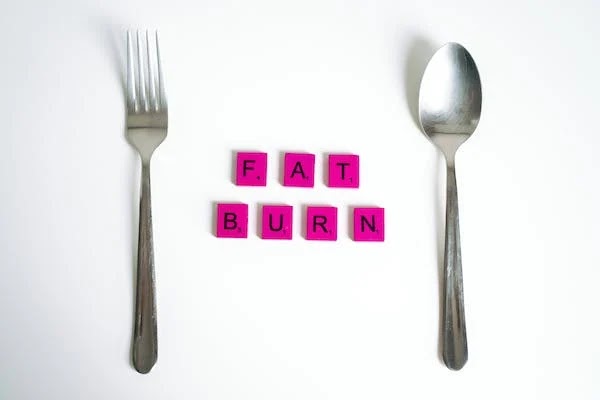What are the weight gain methods for women ? What is considered healthy weight gain ? | Weight Gain Tips
There are several reasons why someone wants or needs to gain weight. Being underweight can present a number of health problems. Even those who are not clinically underweight or managing a medical condition may want to gain weight for other reasons.
Not consuming adequate nutrition can lead to unhealthy weight loss and lead to vitamin and mineral deficiencies, poor bone mineral density, reduced immune function, irregular menstrual cycles in menstruating individuals, and fragile skin, hair, nails, and teeth.
What is considered healthy weight gain ?
Healthy and sustainable weight gain is about 1-2 pounds per week. This can be done by increasing calorie intake as well as building muscle mass.
Why might someone need to gain weight ?
Someone may need to gain weight if they lost weight unintentionally due to a medical condition, have an eating disorder, are below a healthy weight, or want to build muscle mass.
Healthy Weight Gain Methods
If you want to gain weight, it is important that you do it in a balanced and sustainable way. Here are some fairly simple weight gain strategies that focus on a healthy lifestyle and balanced diet. Always check with a healthcare provider, such as a registered dietitian, for individual recommendations and target weight.
Increase your calorie intake
One of the keys to weight gain is creating a calorie surplus, which means eating more calories than your body needs to maintain the weight. You can determine your needs using a calorie calculator. For slow and steady weight gain, try increasing your calories by 300 to 500 per day. This method will vary greatly among individuals as weight gain can be affected by genetics, metabolism, activity level and underlying health conditions.
To add more calories to your day, try a high-calorie snack, add an extra portion to your meal, or include more calorie-dense foods.
More Read : How to stay fit and healthy ? How to make a plan to stay in shape and healthy ? | Health Tips
Eat more often
If it is challenging to increase calories by adding more food to meals, eating smaller meals more often throughout the day can be helpful. Additionally, if you are underweight, your stomach may be smaller and you will feel fuller faster. Try eating five to six high-calorie smaller meals a day instead of two to three large meals.
Try smoothies and shakes
Drinking calories can be an effective way to increase both the calorie density and nutritional value of your diet. Some medical conditions may require the administration of calories through liquid or liquid calories may be better tolerated than solid food. Make or buy smoothies and shakes packaged with whole cow's milk or a comparable plant-based beverage such as soy milk, Greek yogurt, fresh or frozen fruit, nut butters, and seeds for a high-protein, high-fat nutritional source.
Every bite will be caloric
Maximize your meals by including as many calorie-dense foods as possible to get the most bang for your buck. Don't stuff yourself with low-calorie foods. Make room for protein, complex carbohydrates and fats. Include nut butters, nuts, avocado and cheese in your meals and snacks, cheese and crackers, dried fruit, avocado toast and peanut butter and jelly sandwiches.
Top up your meals with extra
Adding supplements to and on top of your meals is a good way to increase calories without significantly increasing the volume of your meal. You can take in more calories without feeling like you're eating significantly more. This is especially useful if you are full early and your stomach has shrunk. Layer pasta, soups, and eggs with cheese, stir butter and sour cream into potatoes, and dip vegetables into a higher-calorie dip like hummus or guacamole.
Do not add fluids
Some people find that drinking water before or during a meal fills them up too much and doesn't leave enough room for food. In addition, caffeine is known to reduce appetite and slow gastric emptying. Be aware of how fluids affect your appetite and your ability to consume enough food. you may want to try drinking after a meal rather than during a meal or drinking high-calorie drinks with a meal.
Add dessert
Include dessert regularly. Desserts can be a simple and tasty way to add more calories to your diet. Try regular whole milk ice cream, coconut ice cream bars, chocolate chip muffins, or some peanut butter cookies.
Exercises
While too much exercise can affect weight loss, some exercises, especially strength training, can promote weight gain by building muscle. Note that this study was conducted on elite athletes, however, this research suggests that strength training can increase muscle mass and build muscle. Exercise can also help stimulate your appetite, making it easier to burn calories. Always check with your healthcare provider to make sure exercise is safe.
More Read : Why you are gaining weight ? What's with the weight gain? | Weight Loss Tips
Bottom Line
There can be many reasons why an individual wants or needs to gain weight. These include health problems such as an eating disorder, pregnancy, or conditions such as cancer or gastrointestinal disease. Others without medical conditions may also want to gain weight. It's important to do this slowly and sustainably by eating more frequently throughout the day, adding high-calorie foods to your meals and supplementing them with smoothies and shakes.
It is important to consult with your healthcare provider and registered dietitian to receive individualized goals and recommendations for your health concerns and nutritional needs.
More Read :What are the most dangerous foods ? Which enemies at your table ? | Nutrition

.jpg)




.webp)
